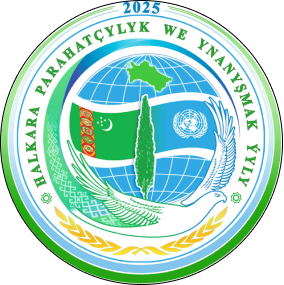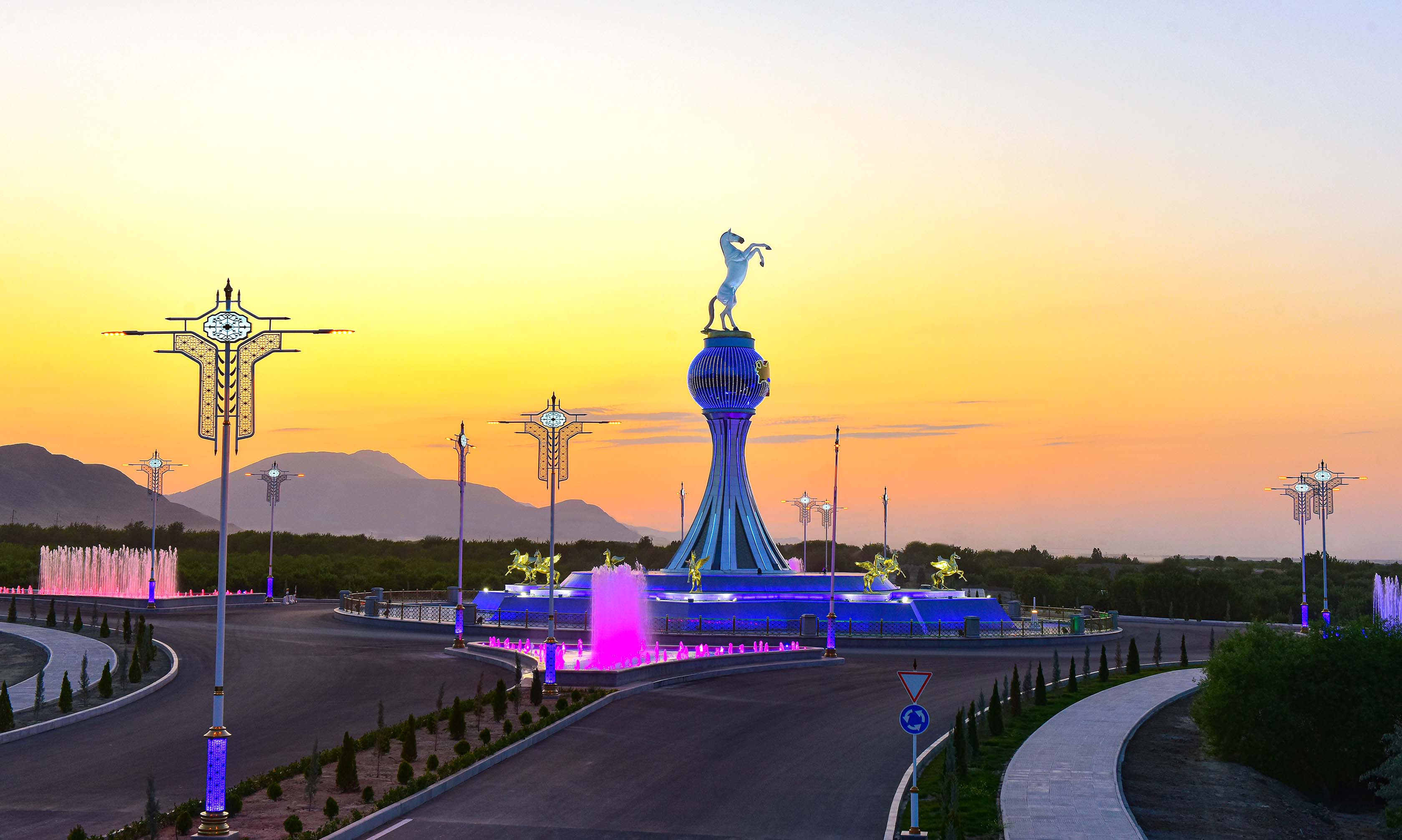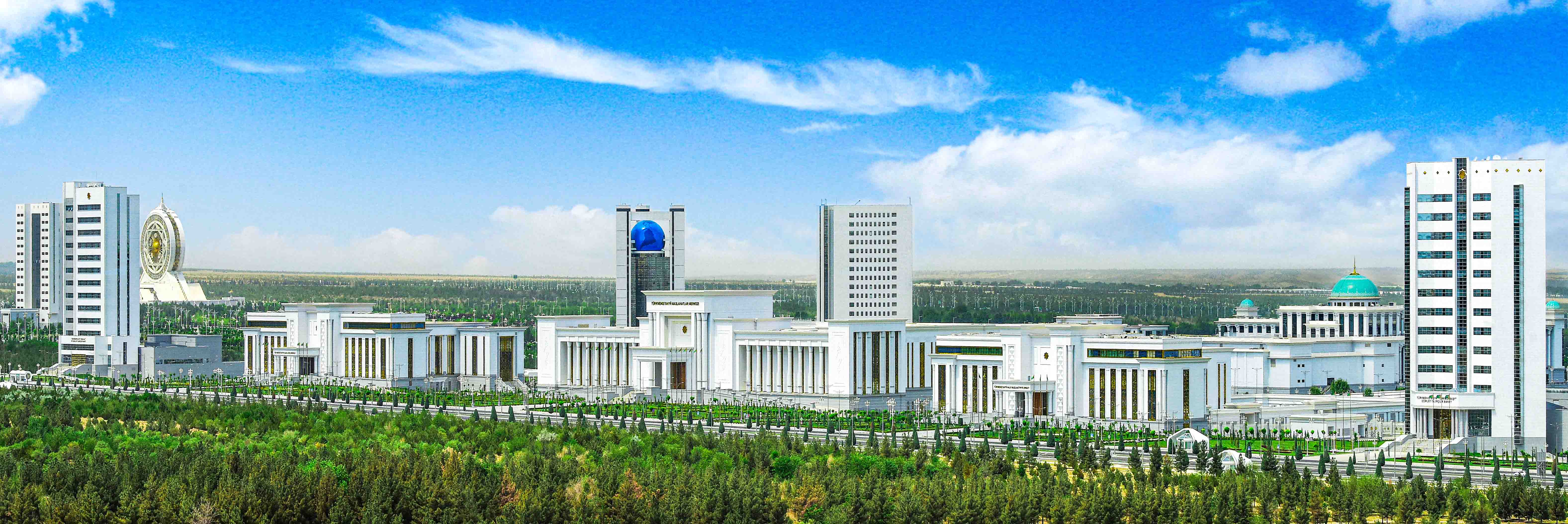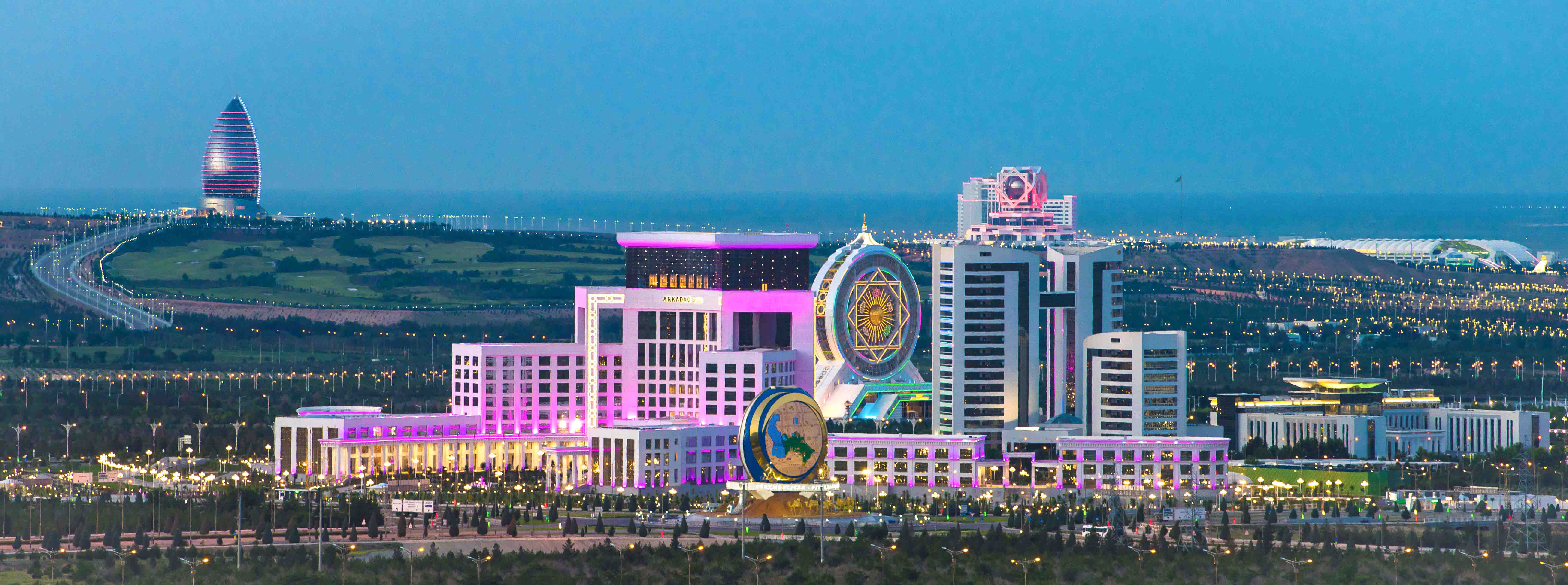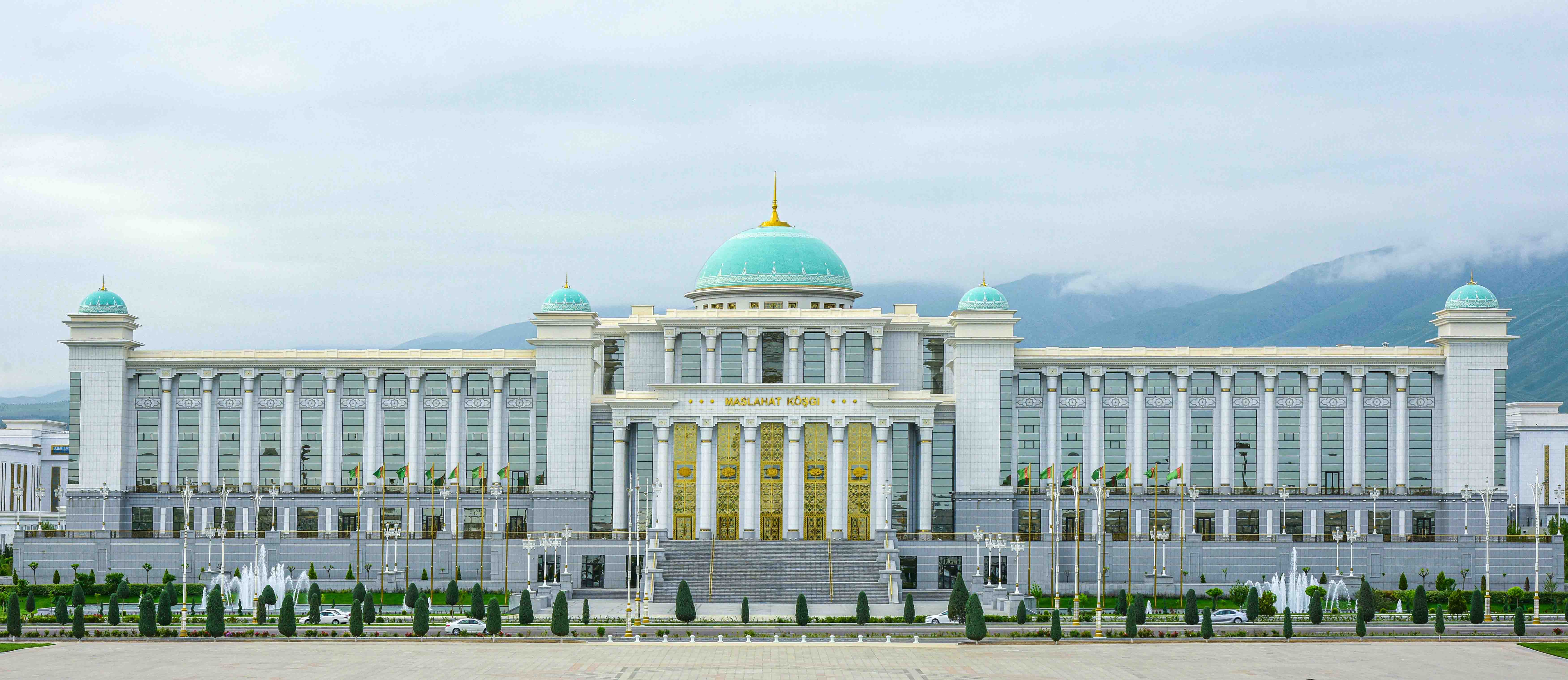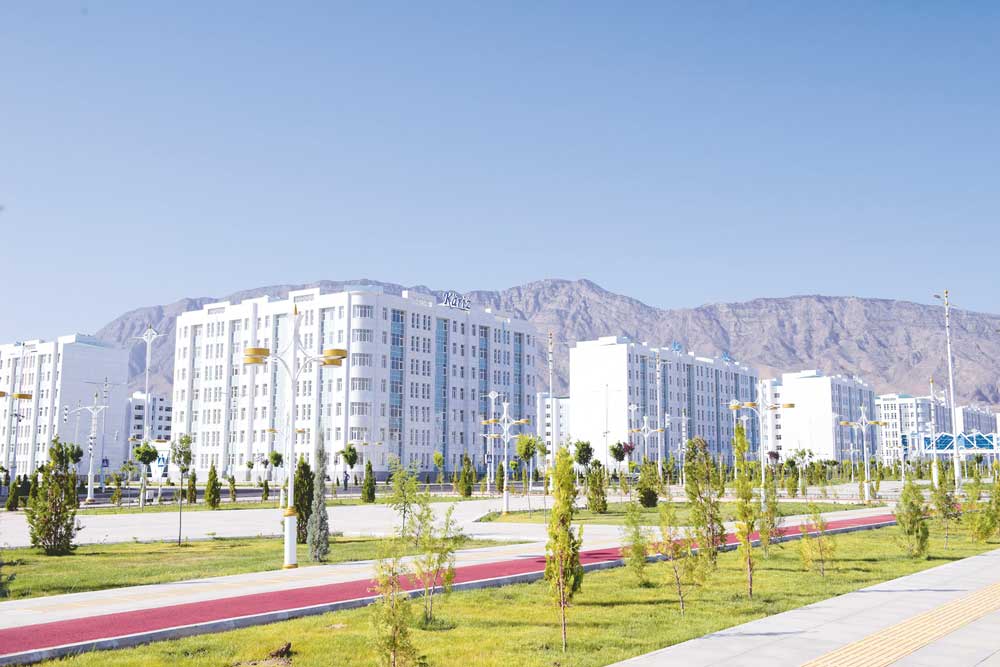
Priority is the Environmental Wellbeing of the Country
The taxi noiselessly covered kilometres of roads, and the cool microclimate in the cabin was like a continuation of the test drive of the general technical characteristics of the cars. This is an unusual transport, it is refuelled not with gasoline, but with electricity and is stuffed with modern electronics. A car tablet allows you to control the main equipment and all functions, including the climate system. There is also a Bluetooth module for connecting a mobile phone.
“Ten comfortable JAC J7 electric vehicles and the same number of YUTONG electric buses of the Chinese automobile industry are a gift to the city of state importance from respected President Serdar Berdimuhamedov,” Suleyman Atageldiyev, head of the Arkadag city bus station and auto complex department of the Türkmenawtoulaglary Agency, says. “Urban transport easily differs from its ‘brothers in the craft’, powered by internal combustion engines – excellent performance, modern look and comfort for passengers and drivers. An important environmental difference of electric vehicles is the virtual absence of an exhaust system, without which an internal combustion engine cannot exist. There is no roar of the engine coming from the muffler – traditional fossil fuel cars have been replaced by electric vehicles here.”
Formats of modern transport
Electric vehicles are one of the elements of the strategy to reduce emissions, and the transition to electric transport is one of the main trends in global development. Electric vehicles make a considerably significant contribution to environment protection and are considered the technology of the future not least due to its environmental properties. Transport infrastructure plays an important role in the understanding of the modern urban environment, which takes into account such parameters as comfort, environmental friendliness and safety. These vectors determine the state of sustainability of cities in solving topical problems, such as, for example, the preservation of natural balance. Undoubtedly, the ecological aspect takes the central position today.
The era of the industrial growth of cities coincided with the rapid development of industrial production, made it possible to make megacities technologically advanced and mobile. The deteriorating ecological situation of the planet, the traditional components of internal combustion engines are giving way to more progressive forms of transportation – electric cars and buses, which in the near future will form the basis for a humane urban environment. One of these priorities is the development of transport.
Issues of sustainable development
Climate change is already happening now, and the solution to this problem is one of the issues of sustainable development of the world. Floods, droughts, storms and other similar phenomena are results of human activity. One of these actions is deforestation, and, in fact, they remove carbon dioxide from the atmosphere and absorb carbon, so afforestation is very important. This, in turn, leads to a significant increase in the content of carbon dioxide (CO2) and other greenhouse gases in the earth’s atmosphere.
Greenhouse gases create a heat trapping effect (hence the name), preventing it from escaping into the atmosphere. And now wildfires are becoming worse, floods – more frequent and hurricanes – stronger. Therefore, it was not accidental that the problem of ecology became the topic of the 26th UN Conference on Climate Change, held at the end of 2021. At this prestigious international forum, Serdar Berdimuhamedov, as Deputy Chairman of the Cabinet of Ministers of Turkmenistan, came up with a number of specific initiatives of the Turkmen party, aimed at consolidating the efforts of the international community in matters of adaptation and mitigation of climate change, emphasising that with the adoption of the global Sustainable Development Goals, Turkmenistan was actively working over their achievement.
Based on its obligations under the Paris Agreement, our country is taking practical steps in the field of climate change, in particular, in reducing greenhouse gas emissions by 2030 in key sectors of the economy. Particular attention in this context is given to reducing methane emissions. It was also noted that Turkmenistan planned to achieve in the medium term a zero growth in greenhouse gas emissions starting from 2030, and in the long term – an annual significant reduction.
Reaching zero emissions would require six times as much minerals by mid-century as it does today. Most of them are needed for electric vehicles and batteries, the demand for which, according to forecasts, will increase by more than 50 times by 2050, as the need for batteries to power them increases significantly. And all the necessary raw materials for the production of lithium-ion batteries are in abundance in our country.
Key principles of the strategy
The strategy in the field of environmental policy of Turkmenistan is to solve problems that ensure environmentally oriented economic growth, the conservation of natural resources and the strengthening of the rule of law in the field of environment protection. The main document for the implementation of environmental projects in the country is the National Climate Change Strategy (NCCS) of Turkmenistan. It reflects the national vision of issues related to climate change and is the basis for the formation and implementation of the state policy of Turkmenistan in the field of climate change and its consequences.
In addition, the National Strategy provides for a number of sector-specific mitigation and adaptation measures for key sectors of the economy, such as oil and gas, energy, construction, water supply, agriculture and the like. And this strategy is harmoniously combined with the policy of the stable development of the world community and the protection of the world’s ecosystems. In this regard, our country closely cooperates with international organisations. Turkmenistan has ratified many international conventions and UN programmes regarding various aspects of environment protection, the rational use of natural resources and the solution of environmental problems.
Our state sees the solution of environmental issues on the basis of universally recognised norms of international law, taking into account the interests of all countries and with the active participation of the world community represented by the UN and other authoritative international organisations. In contacts with the world, Turkmenistan is committed to international agreements on environment protection, first of all, by joining the UN environmental conventions, which is a guarantor of environmental conservation on a global scale. These are the Framework Convention on Climate Change, the Convention on Biological Diversity, the Vienna Convention, the Montreal Protocol on Substances that Deplete the Ozone Layer and other equally important international documents in the sphere of ecology.
Supporting the efforts of the international community to reduce greenhouse gas emissions, our country is systematically moving to the use of modern environmentally friendly and resource-saving technologies in the industrial sector. Thus, our country is striving to make its economy “greener” and to become more efficient in the use of resources.
Green energy
Today, renewable energy is attracting more and more attention. It is obtained from sustainable sources such as hydropower, wind power, solar power, geothermal power, biomass and tidal power. Unlike fossil fuels such as oil, natural gas and coal, these energy sources do not deplete, so they are called renewable. A renewable, manageable energy system provides a range of social and economic benefits, including jobs. And now, when humanity seriously think not only about economic, but also about environmental benefits, the use of alternative energy has become quite popular.
Possessing the world’s hydrocarbon resources and ranking fourth in the world in terms of proven resources of a low-carbon energy source – natural gas, the country also aims to develop alternative energy. The country has developed environmental projects for solar and wind power plants, which are planned to be built in accordance with the National Strategy of Turkmenistan on Renewable Energy Development. One of them provides for the construction of a hybrid solar-wind power plant with a capacity of 10 megawatts in the Kizylarvat etrap, Balkan velayat. The project of a similar solar-wind power plant was developed for implementation in the vicinity of Turkmen Lake Altyn Asyr.
Blooming garden of the Motherland
To effectively increase the resilience of ecological systems and forestry to climate change, the National Afforestation Programme of Turkmenistan for 2021–2025 was developed and approved. It provides for the planting of deciduous, coniferous and fruit trees, grape seedlings and desert plants by various departments and the administrations of velayats and the city of Ashgabat, the expansion of international partnerships in this area and the introduction of advanced world experience. The Green Belt is a kind of protective base not only around our capital, but throughout the country. It plays a key role in utilising large volumes of carbon dioxide in the atmosphere and preserving the diversity of plants, animals and ecosystems in general.
Planting seedlings has a global potential for climate change mitigation compared to all other solutions. Trees take in carbon dioxide (CO2) from the air to grow and produce nutrients through photosynthesis and then they release oxygen as part of the by-product of this process. Only in recent years, Ashgabat and all major settlements of the country have been ringed with a green belt of coniferous, deciduous and fruit trees.
Great work is being done in the field of the rational use of water, land and biological resources, the conservation of biodiversity and natural landscapes and control over desertification and deforestation. The country has laws “On Nature Protection”, “On Specially Protected Natural Territories”, “On Protection of the Ozone Layer”, “On Fishing and the Conservation of Aquatic Biological Resources”, “On the Vegetable Kingdom” and “On the Animal Kingdom” and the Forest Code.
* * *
An environmentally friendly mode of transport – electric cars and buses – is a gift from the head of state to the city of Arkadag. The priority direction of the far-sighted policy of President Serdar Berdimuhamedov and the
National Leader of the Turkmen people Gurbanguly Berdimuhamedov is concern for the environmental wellbeing of the country and the preservation of natural resources for the people of Turkmenistan and its future generations.


